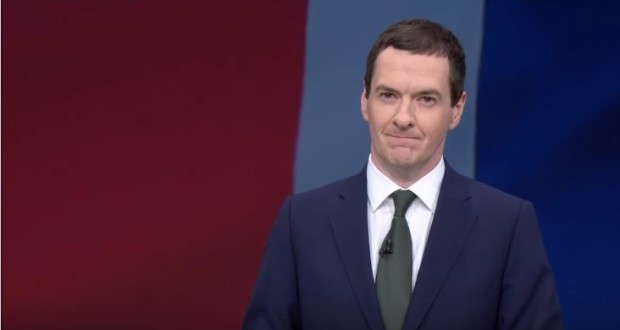Osborne warned us, in effect, that this week’s budget will be a shocker when he announced earlier this week that he is aiming to cut public spending by half by 2020. He thought cuts on this scale would be necessary to balance the UK budget, as the global financial situation was making it difficult for the UK economy to improve its performance. His pessimism was in sharp contrast to the optimism about the economy which he showed just before the General Election.
However, despite this level of cuts, the Government seems to have found enough cash for a new handout to “middle England” – those in work who are potential Tory voters. They have announced today, Monday, 14th March, that they are bringing in a new savings support scheme. Workers who receive in-work benefits but can manage to save £50 a month will get a cash handout from the Government of up to £1,200 over four years.
The Government says the scheme is a way of helping low paid workers, and the details of exactly which workers will be eligible for the scheme have not yet been announced. However, very many young professionals with families and high rents do qualify for some sort of in-work benefits. The Tories will hope to keep attracting their votes by encouraging them to believe that their jobs will be safer under a Tory Government because the Tories can be trusted to run the economy better than Labour. In fact, both governments, as Osborne has just all but admitted, are at the mercy of the global economy.
The Labour Party was quick to condemn Osborne’s new savings gimmick. Owen Smith, Shadow Work and Pensions Secretary, put the cash handout to the few in the context of public spending cuts for all. “[It’s] like stealing someone’s car and offering them a lift to the bus stop,” he said. The Party also called for long term investment in skills, infrastructure and new technology to strengthen the UK economy in the face of ongoing global uncertainty.
Other economists also spoke out against the scale of public spending cuts, warning that the strategy risked slowing the economy down rather than boosting it. Cutting public expenditure would lead to job losses and a loss of demand for UK-produced goods and services. Businesses, which would also be facing the challenge of a rising National Minimum Wage, would face a difficult struggle to survive.
George Osborne’s will present his Budget to Parliament on Wednesday, 16th March.
[Adverts]
 East London News A Force for the community…
East London News A Force for the community…




